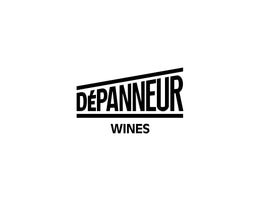
Champagne Pierre Paillard - "Les Terres Roses" Bouzy Grand Cru Rosé Extra Brut NV 750ml (12.5% ABV)
This historic family estate is helmed by two brothers, who have introduced their own special touch. (family has owned vines in Bouzy since the 1700s)
The Paillard estate is divided into 28 parcels over 11 hectares, planted entirely in the Grand Cru of Bouzy. The average age of the estate’s vineyards is about 29 years, with the oldest parcels dating from 1956. Starting in 2012, the brothers have focused on a massive replanting of selection massale Pinot Noir from their oldest parcel, Les Maillerettes. Today 80% of their vineyards are planted to Pinot Noir, which for them is synonymous with the village of Bouzy with it’s south facing slopes that produces rich and aromatic pinot noir.
They have farmed organically since 2012 but only became certified in 2020 - believing you have to go further. All parcels have been planted with cover crops for the last ten to fifteen years and synthetic treatments, such as those used against mildew, are kept to an absolute minimum.
Pretty elegant rose petals, delicate, subtle, haunting, creamy mousse, strawberries, marzipan, This dry sparkling rosé is serious, rich, and full-bodied. Spent 3 years on the lees.
92 pts Jeb Dunnuck 92 pts Decanter
base vintage is 2018. Chalky limestone soil. Miniscule dosage of 1 g/L. Can be cellared for another decade easily.
region: Champagne
varietal: 64% Chardonnay, and 36% Pinot Noir (most vinified white, a small percentage vinified red)
style: sparkling (traditional method)
farming & cellar: certified organic, practicing biodynamic, Each plot is harvested and vinified separately in oak. Fermentation is carried out at lower temperatures to retain the aromatics and the wines are kept in combo of steel and neutral barrel on their fine lees until the early summer, bottled in June/July to maximize the influence of the oak and because they rely on native yeast fermentation and natural malolactic fermentation that takes time so they don’t want to rush the fermentation. After bottled for the second fermentation and kept in their 19th century cellars for a minimum of 3 years, aged under crown cap
